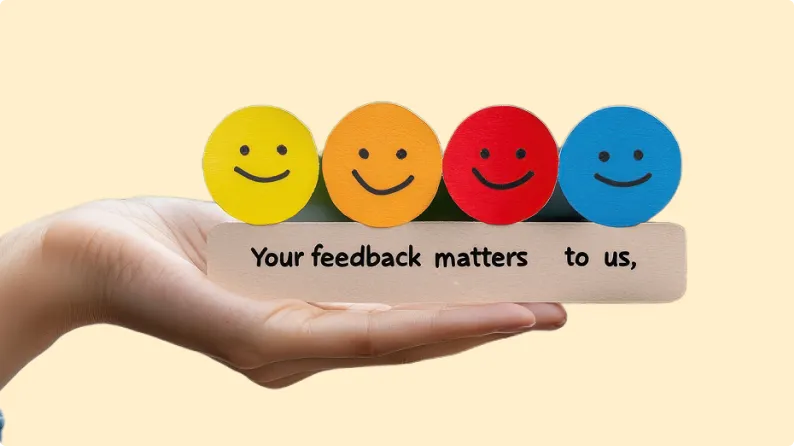On this page
To dive into the importance of gratitude in leadership, let me take you back to 2011 when I was invited to conduct a daylong creative problem-solving workshop at Café Coffee Day. The session was at the CCD head office at the Vittal Mallya Road, right above the grand Café Coffee Day Square.
In attendance were the heads of marketing, design, human resources, and other key functions, and a bunch of enthusiastic participants. It was an ordinary session but for the presence of late VG Siddhartha, the CEO of CCD. His presence made the entire proceedings real, memorable, and highly impactful.
Usually, the leaders think of such long workshops as ‘not-meant-for-me’ or if they at all show up, they do so at the fag end of the session, to listen to the top ideas. But Siddhartha was different.
He was thick in the proceedings, discussing, debating, and more importantly, listening to problems and ideas without being judgmental. Imagine the impact that his presence had on the morale of the group, let alone the outcome - in terms of actionable ideas. That is how a culture of innovation is set.
After so many years and several hundred sessions later, I still remember that day, not because of the company, but the ‘company’ I had. The sheer ability of leaders to offer a psychological safety to everybody in the audience, letting the employees freely debate and contest, and all this while, disciplined by the rules of the game, was priceless. I do not see several organizations and leaders doing so, and hence I often fall short of inspiring stories. What stands out from the experience, personally, was the sense of importance that the leader associated with each person, each problem, and each idea.
In essence, he was cultivating a sense of gratitude towards his employees for having shown up that day, opening up, and solving some thorny problems with some incisive ideas. He did not take anybody’s time and ideas for granted, and his sheer presence made a loud statement that it is important for him, and so should be for you. Real leaders lead this way.

When was the last time you admitted that you didn’t know the answer to an important question, and went on to appreciate somebody who answered? Does it make you comfortable appreciating complete strangers? If you find it difficult, then how are you supposed to collaborate with them? How can you solve a problem without appreciating the person who’s suffering from it? And yet appreciating others, offering genuine ‘thanks to you’ doesn’t happen as often.
Leaders thank their employees, customers, partners, and even nemesis in ways that help them all rally towards their True North. Take for instance Walt Disney, where happy work culture is built in a manner that exceeds the employees’ expectations, in order to exceed the customers’ expectations. The company calls its customers ‘guests’ while its employees ‘cast members’.
As a motto, the leadership team notes:
Budgets, schedules, reports, more reports, union negotiations, training programs, meetings … more meetings, handbooks, cover-your-ass memos and the endless things which take up your time are of no value unless they end up producing A HAPPY GUEST.
Little doubt Disney continues to spread its magic even after 60 years, and across age groups.
A genuine appreciation goes a long way in fostering creativity at the workplace notes Harvard’s Teresa Amabile and Steven Kramer. In an analysis of 12,000 daily diaries, the authors found that of all the events that occur on best days, one stood out well above the rest – simply making progress on meaningful work. An appreciation of your own work and that of others helps enhance the flow of ideas and commitment to make them happen. Leaders play a significant role to ensure that there is a culture of appreciation prevailing across the organization.
Here are three ways in which, as a leader, you could foster a temperament of gratitude for yourself and your team, and hence up the momentum of creativity and innovation at your organization.
Appreciating the risk involved in innovation
Eric Schmidt, the former chief of Google, says, “an environment of free-flowing ideas plus disciplined decision-making can lead to breakthrough ideas. You just have to get comfortable with a little chaos.” However, it is very easy to get lost in the chaos and get confused between failed attempts and wasted efforts, and that’s where shaping the employee morale and attitude towards accepting failure plays a critical role.
Failure is a part and parcel of innovation. However, tolerating and learning from failure doesn’t come in easy. For an original idea to see the light of the day, there would always be several ideas that fell by the way, and if there isn’t sufficient fuel to persist with those ideas, success could be elusive. Take for instance the failure of Amazon’s search engine A9, or it’s Fire phone before the company hit gold with AWS, Amazon Prime, Kindle, and Alexa, amongst others. Where does all the inspiration come from? An attitude of gratitude.
Where does Bezos get the attitude of gratitude? In fact, the quote that inspires Bezos, who in turn inspires millions, is the one from Ralph Waldo Emerson:
To laugh often and much; to win the respect of intelligent people and the affection of children; to earn the appreciation of honest critics and endure the betrayal of false friends; to appreciate beauty; to find the best in others; to leave the world a bit better, whether by a healthy child, a garden patch, or a redeemed social condition; To know even one life has breathed easier because you have lived. This is to have succeeded.
It sums up the importance of gratitude. Only when you are keen to make a difference in someone’s life and realize how lucky you are to do so that you get to keep doing it, and in the process comes success. Small acts of kindness can go a long way in inspiring greatness.
A sense of gratitude helps you get comfortable with ambiguity
If you have even remotely engaged in the act of creation, you wouldn’t have missed out on the element of risk it involves. The risk can range all the way from a slight hesitation to a social out casting, as witnessed by Galileo Galilei and several others over the years. However, an attitude of gratitude, especially acknowledging how grateful you have already been, offers the strength to face uncertainty. You could be grateful to the very opportunity bestowed upon you, regardless of the consequence.
On the ways by which gratitude helps lower stress and enables coping with ambiguity, Pete Sulack, a leading expert in stress reduction, notes:
Practicing gratitude gets you in the habit of putting your attention on something outside the immediate 'problem'--the bottom line, the drama around the water cooler, the late shipments. It demands attention. By developing the ability to stop and be grateful right now, you train your mind to pay attention to just one thing and replace negative thoughts with positive ones.
It always helps to pass on the appreciation to feel a little better and to be able to take up greater challenges.
In his book, Wings of Fire, Kalam writes about how his attitude of gratitude towards Vikram Sarabhai and Satish Dhawan enabled him to survive the failure of India’s first SLV launch in 1979. Satish Dhawan, as the Mission Director, absorbed all the criticism and responsibility of the failure and promised everyone that his team would succeed in the next attempt, and in 1980, when the next launch was successful, he lets Kalam and his team take the credit. When Kalam narrates the story, it’s difficult to overlook the importance of gratitude in leadership and shaping the excellent work ethics and innovation culture at present-day ISRO.
In Kalam’s words,
If someone asks me about my personal achievements in Indian rocketry, I would put it down to having created a challenging environment for teams of young people to work in
At one point in time, he was young and the likes of Vikram Sarabhai, Satish Dhawan, and Brahm Prakash had enabled a culture of gratitude to help the likes of Kalam innovate fearlessly.
Acknowledging the good work of peer groups enhances spontaneous collaboration
The great English poet, John Donne, very famously quipped, “no man is an island entire of itself; every man is a piece of the continent, a part of the main.” It is even more true with innovation. As Ideo, the world’s foremost design company likes to put it, ‘enlightened trial and error succeed over the planning of the lone genius’. Innovation is a team sport, and you would need to create such a team almost spontaneously. Such teams can often span organizational boundaries, as seen in Open Innovation projects, and can be ever-morphing in its size and intensity, as witnessed in the startup milieu. What binds such things together? Apart from an enduring common purpose, the team ought to have mutual respect, harmony, and trust. An attitude of gratitude provides the glue that binds such teams together through thick and thin of the innovation journey.
On the importance of trust in collaboration, Steven Covey notes, “without trust, we don't truly collaborate; we merely coordinate or at best, cooperate. It is the trust that transforms a group of people into a team.” Unless you thank people genuinely for a job well done, how would you expect them to reciprocate and trust you when the demands go steep? In innovation, with risk lurking at every corner, it’s important that the individuals are ready to go the distance with you and this calls for being mindful, grateful, and graceful.
Needless to say, as a leader, if you wish your team to drive innovation, start by appreciating them wholeheartedly, even for the deeds that might seem normal. It is for bigger projects and risks, which are essential to driving innovation at the workplace, that you are preparing your team for. An anonymous saying can be a nudge for the practicing managers - ‘if you don't show appreciation to those that deserve it, they'll learn to stop doing the things you appreciate’. So, thank others when you think of others for the little, they have done to make your life better, and don’t forget to practice the same at work, for innovation has no easy way out.















